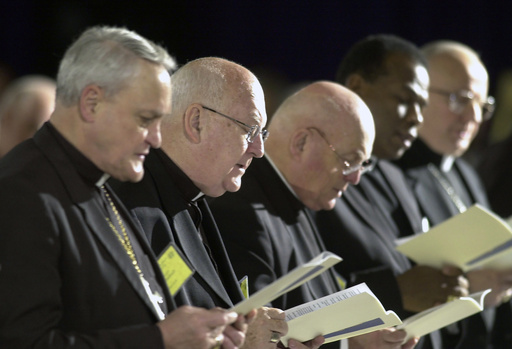
Survivors of sexual abuse within the clergy appealed to the Vatican on Monday to implement a stringent zero-tolerance policy akin to that which was established for the U.S. Catholic Church in 2002. They argued that there is no justification for not safeguarding children globally from abusive priests to the same extent.
The policies set in the United States during the peak of the scandal dictate that a priest will be permanently removed from any ecclesiastical duties after even one confirmed incident of sexual abuse, either admitted or verified through church regulations.
This strict one-strike policy has been recognized as one of the most robust measures within the church, considered by some as an ideal standard, while others view it as excessive or imperfect but an improvement over past practices. The U.S. bishops adopted these norms as they sought to regain trust following the alarming reports of abuse and concealment that were exposed by the Boston Globe’s “Spotlight” series.
In the years since, the abuse crisis has engulfed the church on a global scale, prompting survivors from various countries to claim that the American policies should be applicable everywhere. They urged alterations in the church’s internal canon law, suggesting that given the Vatican’s approval of the norms for the U.S., similar implementations could be universally adopted.
“Even though Pope Francis has consistently advocated for zero tolerance towards abuse, those declarations have not translated into meaningful actions,” stated Gemma Hickey, a transgender abuse survivor and president of the global survivor organization Ending Clergy Abuse.
The initiative unveiled at a press event was developed during an unusual gathering in Rome last June involving survivors and top clerical experts focused on abuse prevention. Participants characterized the meeting as a “historic collaboration” between groups that typically have a strained relationship, given the victims’ significant skepticism of the Catholic leadership.
The clergy members present included Rev. Hans Zollner, leading the church’s primary academic center for safeguarding; Bishop Luis Manuel Ali Herrera, the deputy at the Vatican’s child protection advisory board; and Rev. Ulrich Rhode, the dean of canon law at the Gregorian University, along with diplomats from the U.S., Australia, and other nations.
However, no representatives from the Vatican’s legal office or the Dicastery for the Doctrine of the Faith, which oversees all global abuse cases and establishes policy in secret, attended the meeting. This absence raised uncertainties about the future of the proposed policy changes since the U.S. protocols were only instituted due to pressure from American bishops responding to their outraged congregations and insurance provider demands.
Advocating for a change is likely to be challenging, as the Vatican has recently reiterated its commitment to “proportionality” in dealing with abuse cases. This approach favors tailored sentences over a universal standard, considering cultural nuances in nations where discussions about abuse are less prevalent compared to Western societies.
Consequently, this has led to comparatively lenient sanctions for confirmed abuse cases, which in the U.S. would typically result in a priest being permanently barred from any church activities.
